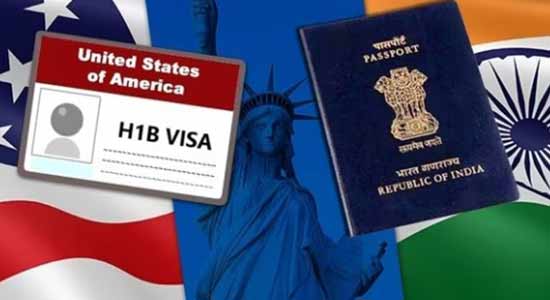70 Indian graduates sue the US government over H-1B denials based on employers’ fraud
The plaintiffs—employed through a training program for foreign graduates of US colleges and universities—say they didn’t knowingly engage in fraud despite their employers’ actions.

A group of nearly 70 Indian nationals has taken legal action against the US government, alleging visa rejections stemming from their employers' fraudulent activities.
According to a report by Bloomberg Law, these individuals, employed under a program for foreign graduates of US educational institutions, maintain their innocence regarding any employer misconduct.
Nonetheless, they faced negative consequences for their associations without being granted the chance to present their side of the story.
In a complaint, the US Department of Homeland Security (DHS) is accused of denying H-1B specialty occupation visas to these workers, despite their lawful employment with reputable companies.
Representing the plaintiffs, Jonathan Wasden, an attorney from Wasden Law, remarked that the DHS seemed to presume guilt for anyone connected to these companies, assuming involvement in fraudulent activities to attain visas or immigration advantages.
The plaintiffs are seeking legal intervention to reverse the DHS's visa application decisions and to ensure the opportunity to address fraud allegations prior to any determinations about their eligibility to enter the US.
According to the lawsuit, the DHS violated an Administrative Procedure Act by overstepping its authority and labeling the plaintiffs as inadmissible without a comprehensive evidence record. Additionally, the agency's actions were procedurally flawed, lacking notification to visa applicants about the measures taken against them.
The plaintiffs were employed by four IT staffing firms—Andwill Technologies, AzTech Technologies LLC, Integra Technologies LLC, and WireClass Technologies LLC. These companies were permitted to join the Optional Practical Training (OPT) program and certified through the E-Verify employment verification system.
The lawsuit underscores that the DHS uncovered fraudulent schemes by these companies. However, instead of protecting the students, the agency treated them as if they were accomplices in the fraudulent activities.
One of the individuals named in the lawsuit, Siddhartha Kalavala Venkata, shared his distress after being denied entry to the US. Despite working at Integra through the OPT program and attempting to switch from an F-1 visa to an H-1B visa, his H-1B application was rejected due to suspected fraud or intentional misrepresentation.
The plaintiffs contend that the DHS also violated an Immigration and Nationality Act by neglecting to provide notice of actions like visa sanctions and failing to afford them the chance to respond with evidence. They underscore that the DHS should have adhered to a procedure involving notifying affected parties and granting them the ability to address the allegations against them.


